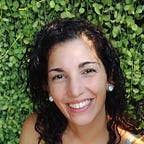3 key concepts of the ethnographic interview (that help us in UX)
We know that the UX field is made up of multiple disciplines that nourish and enhance it. One of them is anthropology, and that´s why research methods that have been used for many years in fieldwork with very different objectives are now being adapted to the field of technology. In my experience, doing some research jobs before learning about UX gave me tools that inevitably enrich my daily life, so I´d like to identify three concepts about the ethnographic interview that may be useful to you.
1. First, what universe are we listening to?
In the first stage of fieldwork, the ethnographic interview works to build the actors’ frames of reference through verbalisation and free association. That is: let us enter their world, let us make the other person feel comfortable and important in their role, and let them get to know us. As in life, listening, listening, listening always makes us better.
2. Ask questions to get more questions
Far from looking for unquestionable results, the focus should be on generating more questions. Which ones are meaningful for our research goal? How can we build discursive context? How can we “listen” to these questions that allow us to go on to formulate new ones? Through observation of their connection with their environment and with others, and through dialogue with descriptive and open-ended questions. This will give us clues about their own cultural universe.
As Bronislaw Malinowski* says, all ethnographic work consists of being able to think about the anatomy of culture: identify the social structure and highlight -among all the irrelevant facts- the laws and norms of a given group, its ways of thinking and feeling.
3. Conclusions are the result of theoretical and empirical analysis
From the moment we think about the goal, theme priorities and research questions, we are already bringing into play our own subjectivity, which is inseparable from us. What emerges from the interviews passes through our theoretical sieve, and the conclussions are a combination between both elements. What categories do we create? How do we group them? What do we prioritise? That´s when we build the research object with the information we identified in the fieldwork.
Have you already done any of this kind of jobs? Are you thinking about doing them for a new project? Let me know if you have any other important concept to share.
As always, thanks for reading :)
Carla
References
*Malinowski, B. (1972). Los argonautas del Pacífico occidental I. Un estudio sobre comercio y aventura entre los indígenas de los archipiélagos de la Nueva Guinea melanésica. Ed. Planeta Agostini, Barcelona, España.
Spradley J. (1979). The Ethnographic Interview. EEUU: Hardcourt.
